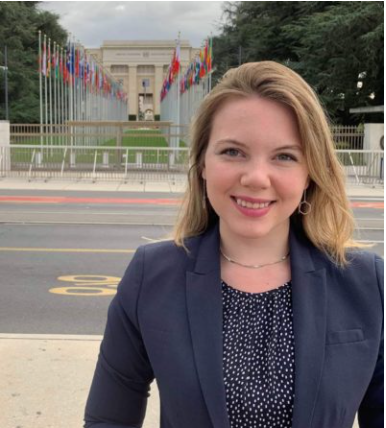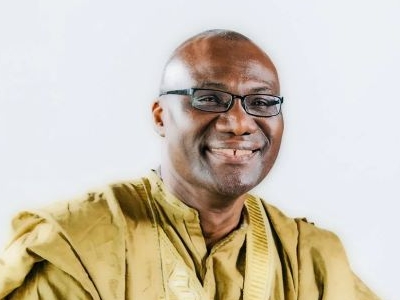 –The folowing story was written by Taia Goguen-Garner.
–The folowing story was written by Taia Goguen-Garner.
Living with chronic pain is something many people know too well, and is very much something that affects their lives.
Stephanie Norlock, a second-year Master’s Neuroscience student has been using computational approaches to study pathological mechanisms driving chronic pain within the spinal cord.
Using a computational approach, her research will look at the patterns of activity that groups of cells produce across time, which deviates from standard acute pain mechanisms.
Her research has important implications as chronic pain is a topic that quickly implicates a number of very different groups and environments.
“Understanding functional differences across chronic pain states may impact chronic pain patients through the development of new treatment targets in the nervous system for specialized types of chronic pain, development of novel assays, tests, or scans for specific chronic pain diagnoses, and even further characterizing chronic pain diagnoses on paper to provide more accessible diagnosis and treatment avenues for clinicians to navigate with their patients,” explained Norlock.
Although Norlock has not experienced chronic pain herself, this research has allowed her to hear stories and lived experiences of those living with chronic pain.
Shared the grad student: “Women, veterans, and BIPOC Canadians are examples of groups that suffer from chronic pain conditions at a higher rate than the general Canadian population, and it is crucial to cover all bases when determining why that is. Are there inherent biological differences that could be addressed through pharmaceutical intervention? Are patients from certain groups that have different levels of access to clinical care for their pain? If they do, are they listened to?”
This research is being done in the Hildebrand and Sun labs at Carleton University which focuses on investigating spinal mechanisms of pain processing.
“I got involved in the Hildebrand lab primarily to further my understanding in electrophysiology and imaging techniques, as my honour’s work focused on studying neural dynamics in different parts of the brain using similar approaches,” explained Norlock. “In this context, studying the mechanisms behind pain is extremely interesting and motivating because there is a clear connection between laboratory research and real-world applications.”
When Norlock graduates, she hopes to continue her work in science policy with a particular interest in biosafety and biosecurity.
“Neuroscience is at the heart of emerging technologies that are relevant to current conversations about biosecurity and cybersecurity, where these technologies and their use tend to move faster than policy and legislation sometimes does,” shared Norlock.
The grad student is dedicated to the continued support of professionals around the world on the front lines of the COVID-19 pandemic through her position at the International Federation of Biosafety Associations (IFBA). She works directly with professionals such as scientists, engineers, clinicians, laboratory personnel and policymakers to support sustainable biosafety and biosecurity networks, and narrow the gap between health security policy design and implementation. She is particularly invested in the work and involvement of youth and women in biosafety and biosecurity, where she has developed and facilitates a regional peer mentorship program with participants from over 20 countries, and has developed a new intersectional equity-focused committee to focus on uplifting and supporting marginalized voices in biosafety and biosecurity.
Norlock has also been involved as an NGO observer with an emerging multilateral working group of young scientists following their participation in a Biosecurity Diplomacy workshop on the fringes of the 2019 United Nations Biological Weapons Convention Meeting of Experts, which is currently focused on the emerging biosecurity threats surrounding COVID-19 diagnostics and research around the world.
Most recently, Norlock and her regional partners have presented outcomes of the peer mentorship at the sixth World OneHealth Congress as they contribute to empowerment of global health security and policy in Africa. She and her regional partners have entered into collaboration with her supervisor, Dr. Michael Hildebrand, to publish a corresponding manuscript in OneHealth Outlook’s global health security series.
“Through Dr. Hildebrand’s mentorship, I have learned a great deal not only about cellular and molecular mechanisms of pain, but also soft skills and outlooks that I will carry with me for the rest of my career. Prioritization of collaboration and cooperation before intense competition, patience, positivity, consistent recognition of others’ efforts and embracing the human elements of a lab team or research group are all examples of lessons learned in the year that I’ve spent in the Hildebrand lab, and what I feel ultimately propel us through the challenges associated with this pandemic.”
As a graduate student during a global pandemic, Norlock has stressed the importance of support systems during this tough time.
“I think that, if there’s anything else to say about being a student and professional during a global pandemic, it’s that I hope what I’ve said really resonates with others,” explained Norlock. “Finding success is not a linear path, and last year has thrown our respective paths in many loops. You are not alone in the doubting, the questioning, or the difficulties that last year has brought us, and you will find this success in whatever shape it is for you. Do not underestimate yourself, and try not to be too hard on yourself (which this… I still need to take my own advice on).”
Monday, January 18, 2021 in Grad Student Research, News
Share: Twitter, Facebook




